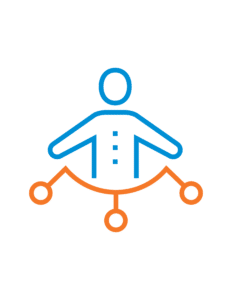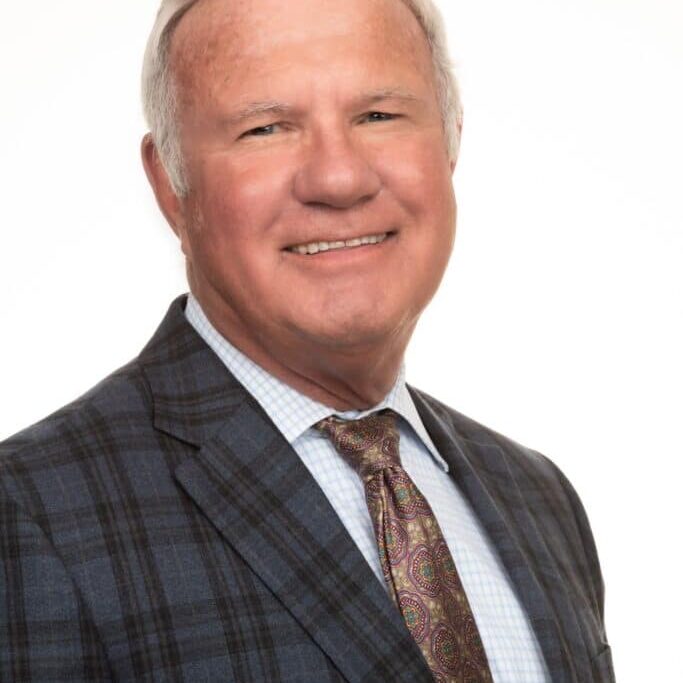What Is a PEO?
Short for professional employer organization, a PEO company acts as your all-in-one HR department, empowering your small to mid-sized business with the expertise and resources typically available only to larger corporations.
With a PEO, your business gains access to a full range of HR services - from payroll, taxes and benefits administration to compliance, risk management and workers’ comp insurance.
This collaboration allows you to focus on growing your business while we expertly handle your HR needs, reducing your administrative burden and enhancing your operational efficiency.
Fewer HR Headaches
Happier Employees
Peace of Mind
Improved Recruitment Efforts
Higher Retention
Better Employee Benefit Rates
Workers’ Comp. Insurance Options
Reduced Paperwork Burden
Decreased Administrative Expenses
The Evolution of the PEO Company
PEOs originated over thirty years ago with a mission to level the playing field for small and mid-sized businesses (SMBs). These organizations emerged as a response to the need for comprehensive HR support in the SMB sector – a realm where such resources are often scarce.
By offering a team of seasoned HR professionals, a PEO company provides an invaluable service, allowing businesses like yours to outsource the complexities of day-to-day HR tasks.
The genesis of the PEO company was driven by a clear vision: to equip SMBs with the same caliber of HR services and benefits typically reserved for larger corporations through a co-employment relationship. This approach not only democratizes access to top-tier HR support but also transforms it into a growth catalyst for SMBs.
So, when searching for an answer to, “What is a PEO?”, understand it is a powerful ally for your small business that ensures HR operations are managed efficiently, compliantly and strategically, thus fostering an environment where business growth and employee satisfaction go hand in hand.
RELATED: What Is Co-Employment? (Yes, You're Still the Boss) >>
Understanding PEOs: The Game-Changer for Small Business Growth
As entrepreneurs launch small businesses, driven by innovative ideas and unique services, they often encounter an unexpected challenge: the overwhelming demand of administrative tasks. Questions like "What is a PEO?" become crucial as business owners grapple with time-consuming responsibilities such as managing payroll, hiring and training employees, and navigating HR-related regulations.
While these tasks are vital for business health, they can divert focus from core passions and strategic growth.
This is where a PEO company steps in, offering a lifeline.
PEOs are not just about taking over necessary but burdensome tasks; they're about reenergizing businesses, allowing owners to redirect their energy toward what they love – innovation and growth.
By partnering with a PEO company, small businesses can refocus on their vision and be confident their HR functions are in expert hands.
You’ve Got Questions about PEOs. We’ve Got Answers.
A few frequently asked questions – and answers – for those interested in learning more about PEOs (professional employer organizations).
PEO stands for Professional Employer Organization.
A PEO provides employment management tasks including employee benefits, payroll administration, workers’ compensation, human resources, and risk and safety management, and human resources compliance guidance.
A PEO, or a professional employer organization, allows companies to outsource key human resource functions like payroll, benefits, training, and guidance to assist small and mid-sized companies with maintaining compliance with federal and state labor and employment laws. Working with a PEO can help business owners and their management teams focus on the business.
Professional employer organizations (PEOs) provide human resources services for their small business clients—paying wages and taxes and often assisting with compliance with myriad state and federal rules and regulations.
In addition, many PEOs also provide workers with access to 401(k) plans, health, dental, and life insurance, dependent care, and other benefits not typically provided by small businesses. In doing so, they enable clients to cost-effectively outsource the management of human resources, employee benefits, payroll, and workers' compensation. PEO clients can thus focus on their core competencies to maintain and grow their bottom lines.
PEOs typically serve as professional employers of their client's employees. The client company reports its wages under the PEO's federal employer identification number (FEIN), and employee liability shifts to the PEO. Employers gain economies of scale by having more benefits options, sometimes at lower rates.
A small- to mid-sized business would turn to a PEO in these cases:
- HR Compliance – They are concerned about legal or regulatory jeopardy as it relates to HR compliance to EEOC, ADA, DOL, or OSHA agencies and they do not have the expertise to manage the situation.
- Time Management – Small business owners often become so overwhelmed with managing routine HR and payroll issues that time to focus on growing the business gets squeezed out.
- Quality Health Benefits – When a business is small, it typically can’t afford the health benefits available to larger organizations with a bigger, more diverse, employee pool.
- Scalability – As a small business grows, its HR needs get more complex. It’s time for consistent and repeatable HR policies and procedures.
Business owners want to focus their time and energy on the "business of their business" and not on the "business of employment." As businesses grow, most owners do not have the necessary human resources training, payroll and accounting skills, knowledge of regulatory compliance, or backgrounds in risk management, insurance and employee benefit programs to meet the demands of being an employer. PEOs give small-group markets access to many benefits and employment amenities they would not have otherwise.
A PEO's economy of scale enables each client company to lower employment costs and increase the business's bottom line. The client can maintain a simple in-house HR infrastructure or none at all by relying on the PEO. The client also can reduce hiring overhead. The professionals at the PEO can provide critical assistance with employer compliance, which helps protect the client against liability. The PEO client can access significant technology and service infrastructure provided by the PEO. In addition, the PEO provides time savings by handling routine and redundant tasks for its clients. This enables the business owner to focus on the company's core competency and grow its bottom line.
There are lots of reasons a small- to mid-sized business would use a PEO. Here are 10 benefits:
- Businesses that use a PEO are 50% more likely to succeed.
- PEO Clients grow 7 to 9 percent faster than businesses not using a PEO.
- Those who use a PEO have 10 to 14 percent lower employee turnover.
- Employees have access to more and better benefits including 401(k), health, dental, and life insurance.
- You – and your employees - will receive HR and payroll support whenever you need it.
- An online portal for employees to access payroll and benefits information.
- Ensure compliance with all state and federal regulations related to employment law and payroll administration.
- Expert support to assist with any HR regulatory changes that impact your employees and your business.
- Get out of doing human resources administration and paperwork.
- Peace of mind – Companies that partner with a CPEO can rest easy, knowing the CPEO meets rigorous IRS requirements that illustrate organizational integrity, expertise, and fiscal health
PEOs (professional employer organizations) are designed specifically to help small- to mid-sized businesses. Typically, these businesses don’t have the resources in house to effectively manage benefits, payroll, Human Resources, HR compliance and workers’ compensation. A PEO fills that need and assumes the responsibility for routine, HR administration, such as payroll, employee handbook, safety assessments, and health benefits open enrollment. The business maintains complete control over the employees and day-to-day business operations.
PEOs are generally the best fit for small- to mid-sized businesses that have fewer than 250 employees.
Axcet works with clients who have a presence in 46 states within the United States. So multi-state and long-distance support are never a problem.
That said, we find that we work best with businesses that are headquartered within 250 miles of Kansas City because we're better positioned to provide that hands-on access that our clients come to really appreciate.
When a company partners with a PEO, a “shared employment” relationship is created. "Shared Employment” means that both the company and the PEO have an employment relationship with the employee. In this relationship, the PEO typically assumes responsibility and liability for the employee administration functions of payroll, benefits, human resources, and risk management. The company still maintains control over all other employment aspects, including hiring setting wages, supervision, etc.
While both are considered human resources outsourcers, they operate in different roles.
- Staffing agencies recruit, screen, and place workers with companies.
- A PEO takes on the responsibility for payroll, employment taxes, benefits, human resources, unemployment claims, and assisting with workers’ compensation and safety matters.
What Is a PEO and How Can It Help Your Business?
A PEO company alleviates the heavy HR workload for small business owners, contributing to reduced employee turnover and accelerating business growth.

Customized HR Solutions by Axcet, Your Kansas City Certified PEO Company.
Tailoring HR solutions to fit the unique needs of small and mid-sized businesses, Axcet HR Solutions stands as a pillar in the Kansas City community. With over 30 years of experience, we've not just assisted but propelled local businesses toward success and expansion.

Elevating Businesses with Our Certified PEO Services
Our certified PEO solution extends beyond mere assistance; it's a partnership that infuses your business with over three decades of HR excellence and innovation. At Axcet HR Solutions, we are committed to nurturing the growth and development of small and mid-sized enterprises.

Our PEO Services
At Axcet HR Solutions, we do more than just manage HR tasks; we become an integral part of your success story. Our PEO services are meticulously crafted to enhance every aspect of your business operations, from streamlined HR processes to strategic growth initiatives.
"We've used Axcet for many years and have always been pleased with their services. We use them for our payroll, benefits and HR support. The staff is "top-notch!" Axcet offers great training and support in areas of HR, compliance, and payroll."
Gloria R. | Lenexa, Kansas
Expertise You Can Use Now

Blog
Signs You May Need a PEO
Navigating the realm of human resources can be difficult, particularly for small businesses. Lacking many of the resources larger companies have and with plenty of operational pressures to attend to, small business owners sometimes push HR to a back burner.


